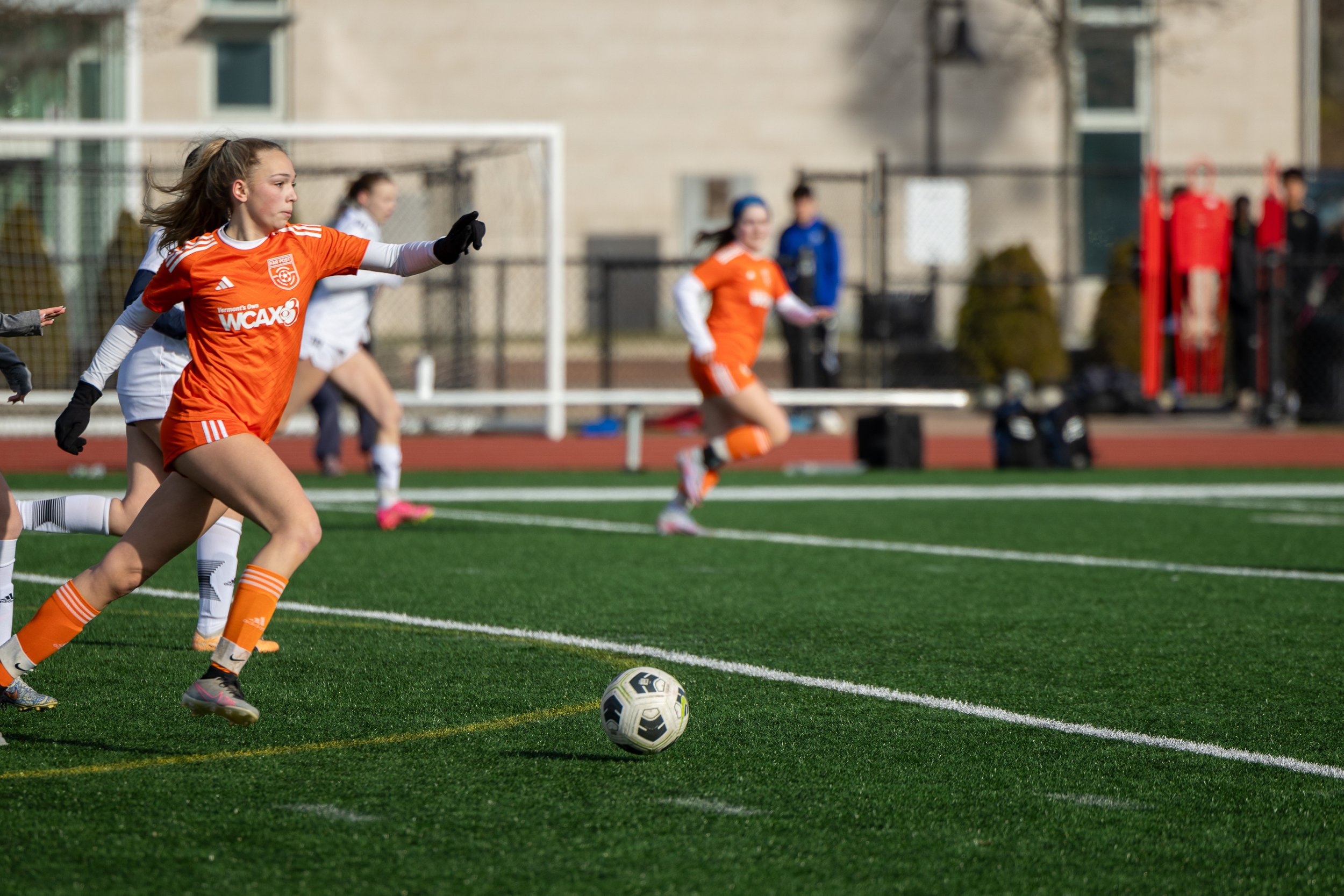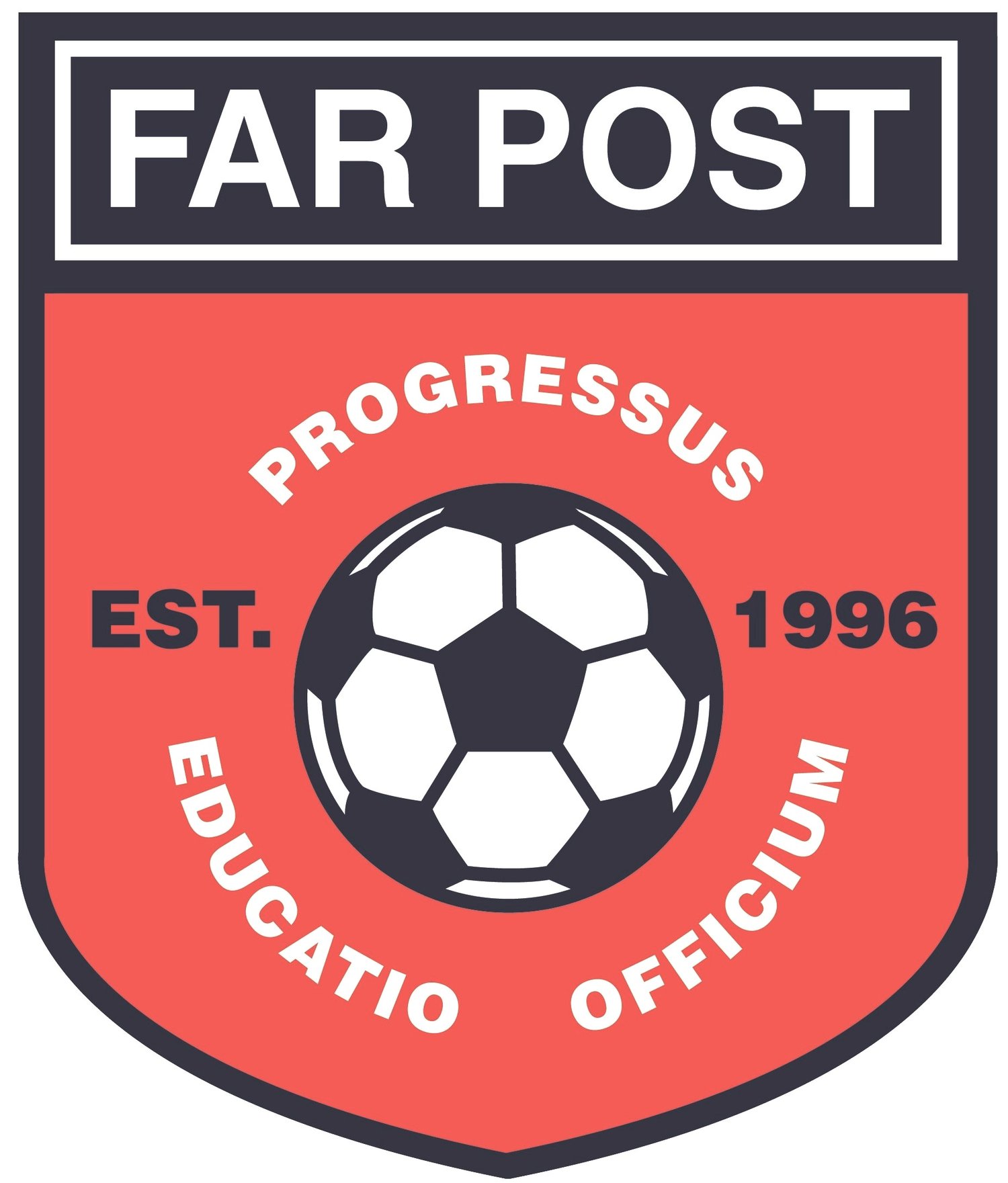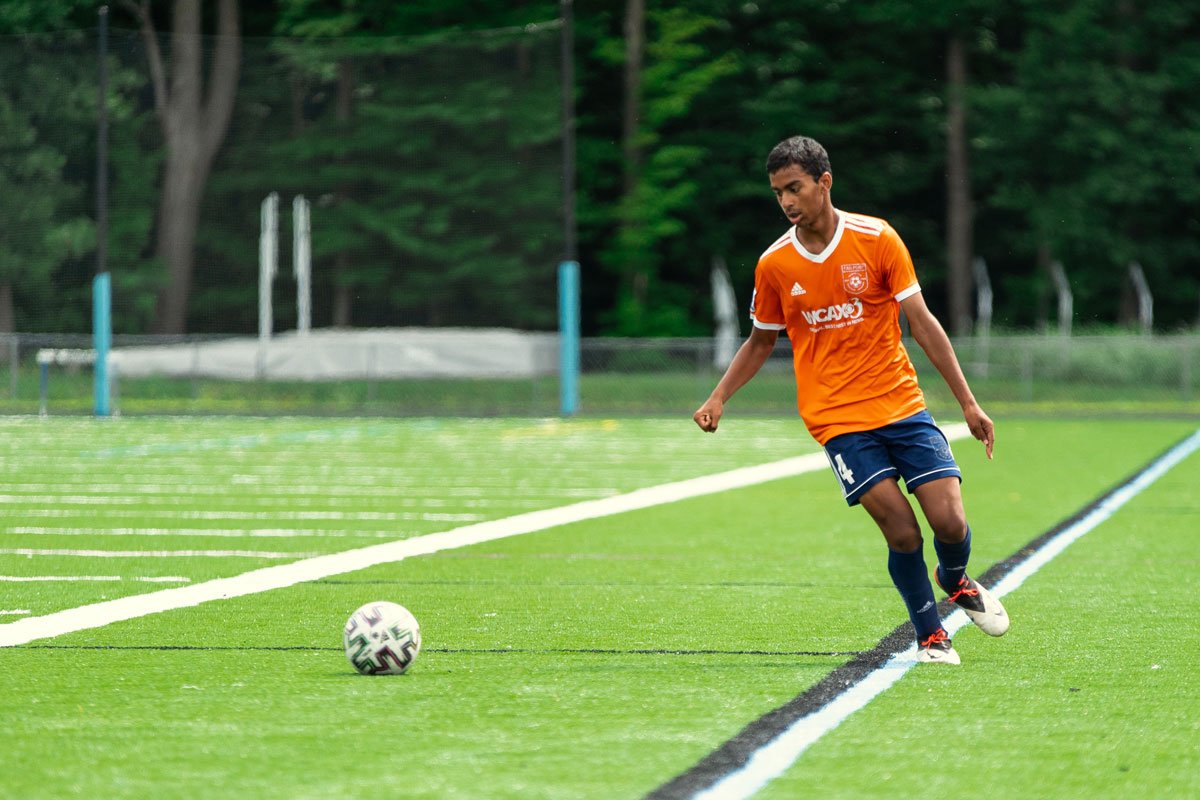
College Corner
Getting Ready For College
Welcome to the Far Post Soccer Club College Corner.
With the arrival of the college consideration phase of a student-athlete's life comes a lot of uncertainty, questions, and anxiety about how to find the right social, academic, and--for many--soccer fit. While we do not force kids to play soccer in college, we want to make sure that every single Far Post player has the opportunity and resources available to them.
Every single player that graduates from Far Post is capable of playing college soccer at some level, it's just a matter of what their priorities are and making sure to not sacrifice their future in order to have this opportunity.
College Placement Process
The College Placement Coordinator’s role is to help parents and
players navigate the college selection process through online resource
guides, yearly presentations, private coaching and assisting with
college placement. The program includes recruiting timeline,
communication development, recruitment process, and financial aid
education. The College Center Coordinator will foster and develop
relationships with universities and college programs to create a
consistent avenue for FPSC players to achieve their goals of attending
college and playing soccer.
Jared Cipriano is our coordinator and has experience coaching and working with recruits from the high school/club level through all three collegiate divisions. His
experience as a college head coach gives him in depth knowledge on the
collegiate recruitment process. His understanding and connections
within the recruiting landscape has helped place players at colleges
across all levels.
Recruiting Timeline
Freshman Year ↓
- Concentrate on academics and transitioning to high school
- Work hard to develop your game
Sophomore Year ↓
- Make list of schools that interest you
- Think about standardized test prep
- Make academic/athletic resume
- Think about camps and clinics at schools of high interest
- Continue to achieve academically
- Don’t let up on your athletic development
- Colleges Coaches may begin to contact you on 6/15
Junior Year ↓
- You may take official or unofficial visits to campus 8/1 of junior year
- Narrow down your list of schools
- Contact coaches, send resume and highlight film!
- Prepare for test
- Sign up for SAT/ACT
- Sign up and attend camps and clinics of schools that you are highly interested in
- Continue to achieve academically
- Don’t let up on your athletic development
Senior Year ↓
- Start application process (pay attention to deadlines)
- Continue unofficial and official visits
- Fill out FAFSA and CSS Profile (pay attention to deadlines)
- Continue to monitor eligibility center and complete all requirements
- Get ready to make a commitment
- Complete senior year strong academically
- Continue to train hard!!
NCAA Recruiting Rules
Division I ↓
- Any time: Athletes can receive non-recruiting materials from college coaches, such as questionnaires, camp brochures, nonathletic institutional publications and NCAA educational materials published by the NCAA.
- June 15 after sophomore year: Coaches can extend verbal scholarship offers, call athletes and send athletes all forms of private electronic correspondence, including text messages, instant messages, direct messages and emails, as well as all recruiting materials.
- August 1 before junior year: Athletes can begin taking official visits, and they can also arrange unofficial visits with a school's athletic department and meet with the coach while on campus. Coaches can begin conducting off-campus contact with athletes at their residence or school.
Division II ↓
- Non-recruiting materials: Athletes can receive brochures for camps, questionnaires, NCAA materials and non-athletic recruiting publications at any time.
- Printed recruiting materials: Starting July 15 after an athlete’s sophomore year, coaches can begin sending recruits printed recruiting materials.
- Telephone calls: Starting June 15 after an athlete’s sophomore year, coaches can start calling athletes.
- Off-campus contact: Coaches can conduct off-campus communications with athletes and/or their parents starting June 15 after an athlete’s sophomore year.
- Unofficial visits: Athletes can take unofficial visits at any time.
- Official visits: Athletes may start taking official visits starting June 15 after an athlete’s sophomore year.
Division III ↓
- Recruiting materials: Athletes can receive recruiting materials at any time.
- Telephone calls: There is no limit on when college coaches can call athletes.
- Digital communications: There is no limit on when college coaches can contact athletes digitally.
- Off-campus contact: After the athlete’s sophomore year, college coaches may begin to conduct off-campus communications.
- Official visits: Athletes can begin taking official visits after January 1 of their junior year.
- Unofficial visits: Athletes can make an unlimited number of unofficial visits at any time.
Preparing For A College Showcase
Email Checklist ↓
Subject: Include vital info (Ex. Grad Year, Position, Uniform #).
Salutation: Dear Coach [Insert Last Name],
Opening Paragraph: Brief introduction of who you are and why you're interested in their program. Make sure to include the name of the school and a piece of information about their program.
Personal Info: Grad Year, Position, Uniform #, GPA, SAT / ACT Test Scores, Club Team Name & Age Group, unofficial high school transcript, NCAA # if you have it
Honors: Things like 1st Team All State, All New England, Region 1 ODP, State Champion, etc. Do NOT list Free Press Athlete of the Week, Far Post Indoor Session 2 Champion, or Nordic Cup Champs.
Additions:
- Link to video (highlights, a full half, or both)
- Intended major and why you are interested in the school you are emailing
- If it's a strong academic school (Ivy, NESCAC, etc.) then list academic honors.
- Email and cell phone for your main reference (likely your club coach)
- Schedule for that showcase. Just because a coach is not listed as attending the showcase you are going to does not mean you should not reach out!
- Closing: Thank them for their time and include some kind of indication that you'd like to talk further.
Email Signature: First & last name, club team name, uniform number, email, and cell number
Additional Notes ↓
- Make your email personal & succinct. Coaches want to know you are interested in their program & do not want to read a novel.
- Make the most important information & data easily visible, don't bury them in a paragraph of text (you can bold them if you'd like).
- List accurate and up to date GPA and test scores. Kids lie about these all the time, but coaches will find out your real info and, if you lie, it could cause them to drop their interest in you.
- Proof read!!!! Be careful copy/pasting. Poor grammar or incorrect coach/school name will be an instant "Delete".
- Using a coach as a reference: You should know that their reputation and integrity as a coach referring players to play at the next level requires them to be completely open and honest. For example, if you aspire to play collegiate soccer but never come to practice, that is something they are obligated to bring up. To those that are fully committed, improving, work hard, and are ambitious, they will be your biggest advocate!
Which Coaches Are Attending ↓
To view a list of college coaches registered to attend each tournament, you can click the tab at the top of the event schedule once it's been released.
Guidance for Creating a Highlight Video
Highlight Video Introduction ↓
A highlight video is essential when corresponding with college coaches. Coaches will want to have a general sense of the skillset, game understanding, athleticism, and competitive level of a player before taking the time to call, text, email, or see in person. It is not advisable to communicate with coaches without having a highlight video to share! A highlight video provides that glimpse into you as a player.
Players should think of a highlight video the exact same way you think about a movie trailer. Your objective is to 'hook' the coach and get them wanting to see more. Think like this, how often do you go to the theatre and spend time watching a movie you did not see a trailer for? More often than not, you heard about the movie and looked up the trailer to see what the hype is all about. The trailer does not tell the whole story, but it draws you in and makes you want to spend time and money to see more!
Length and Content ↓
Highlight videos should be between 3-5 minutes long. In all honesty, a highlight video can be even shorter if the clips are good! Your video should show a variety of skills on the attacking and defensive side of the game. For example, if you are a center back make sure you show yourself heading the ball. If you are a striker, make sure you show yourself pressing and winning the ball back! It is critically important that the first 30 seconds of the highlight be your best actions. Most highlight videos are closed within the first 30 seconds because they are not engaging, have bad production value, or show low level soccer actions!
Film Details ↓
Try to limit your clips to full HD film, elevated camera angle, and competitive games. You want to advertise not only your skill level but also the competitive level you are playing at.
Get Feedback First↓
Lastly, always share your highlight video with coaches that know you as a player before sending them to college coaches. Get feedback and revise multiple drafts!


